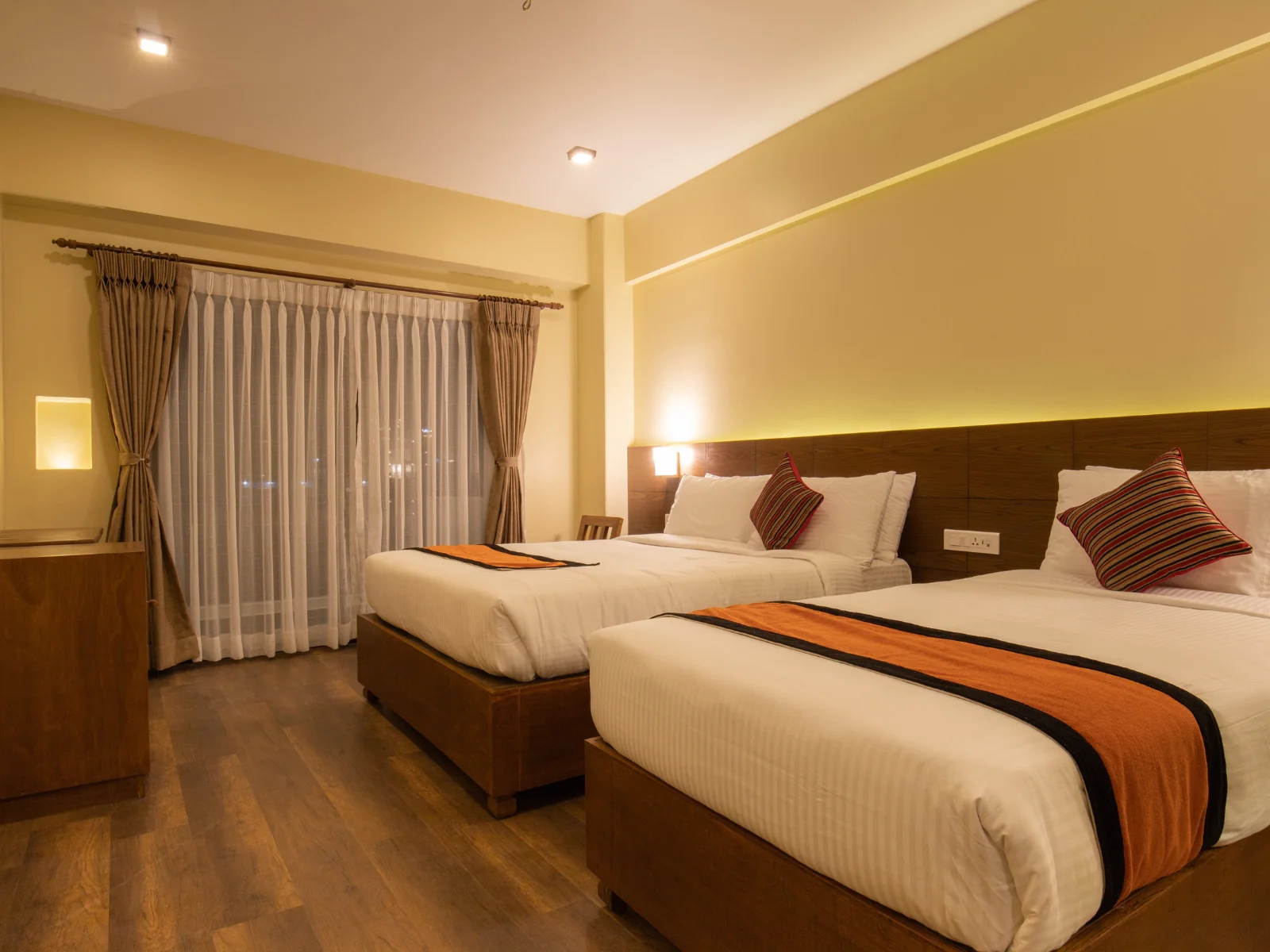
Staying in a PG can be like joining a quirky, communal adventure—think of it as a reality show where everyone’s a contestant and the house is the set! To avoid turning your stint into a comedy of errors, keep these tips in mind. Picture navigating a maze where each turn leads to a new challenge. From mysterious fridge contents to the drama of unspoken house rules, staying in a PG comes with its own set of quirky obstacles. With Ashray Living’s expert tips and insights, you can dodge the pitfalls and become the savvy star of your PG experience, not an unsuspecting extra in a roommate reality show.
30 Things To Avoid When Staying in Paying Guest
Staying in a Paying Guest spot? Avoid becoming a reality show villain! Steer clear of unspoken rules, mystery fridge raids, and late-night noise chaos. Keep your clutter to yourself and always double-check the lease. With Ashray Living’s savvy tips, you’ll avoid the pitfalls and enjoy a smooth, drama-free stay! So, checkout these points to consider and avoid when staying in a Paying Guest (PG) accommodation:
- Ignoring House Rules: Make sure to understand and follow any house rules regarding guest policies, noise levels, and shared responsibilities. Clear communication about expectations can prevent conflicts.
- Mystery Fridge Raids: Label all your food items clearly and avoid taking anything that isn’t yours. This prevents misunderstandings and preserves good relations with housemates.
- Overlooking Lease Terms: Thoroughly read your rental agreement to understand the terms related to security deposits, maintenance responsibilities, and notice periods. This helps avoid surprises.
- Disregarding Quiet Hours: Respect agreed-upon quiet times, particularly if you have housemates with different schedules. Excessive noise can disrupt others and lead to tension.
- Neglecting Shared Spaces: Keep common areas like the kitchen and living room clean and organised. Avoid leaving personal items in shared spaces to ensure they are pleasant for everyone.
- Ignoring Communication: Address any concerns or issues with housemates directly rather than letting them fester. Open communication helps resolve conflicts and maintain a positive atmosphere.
- Disregarding Personal Boundaries: Respect each housemate’s privacy and personal space. Avoid entering others’ rooms or using their belongings without permission.
- Skipping Cleaning Responsibilities: Fulfil your share of cleaning duties as agreed. Regularly clean up after yourself in shared areas to avoid creating a mess that others have to deal with.
- Bringing Unapproved Guests: Always inform your housemates if you plan to have guests over. Unexpected visitors can cause disruptions and may not be welcomed by everyone.
- Neglecting Safety Protocols: Follow safety practices such as locking doors and windows and securing valuables. Familiarise yourself with emergency procedures and exits.
- Avoiding Conflict Avoidance: Don’t ignore small issues hoping they will resolve themselves. Addressing minor grievances early on prevents them from turning into major conflicts.
- Overloading Shared Utilities: Be mindful of your use of shared resources like water, electricity, and internet. Excessive use can lead to disputes over utility bills or inconvenience.
- Neglecting Security Measures: Ensure that all security measures are followed, such as locking doors and using security systems if available. Avoid leaving doors or windows unlocked.
- Forgetting to Communicate Changes: Inform housemates of any significant changes in your schedule, like late nights or long absences, to manage expectations and avoid misunderstandings.
- Ignoring Shared Responsibility: Contribute fairly to household responsibilities such as purchasing supplies or maintaining common areas. Sharing duties prevents feelings of unfairness.
- Disregarding Local Etiquette: Be aware of and respect local customs and etiquette. Understanding and adapting to cultural norms helps you blend in and avoid awkward situations.
- Skipping Routine Maintenance: Regularly check and maintain appliances and fixtures in your room. Report any issues promptly to prevent larger problems or inconveniences.
- Using Common Areas as Personal Storage: Avoid turning shared spaces into personal storage areas. Keep your belongings in your room to maintain a clutter-free environment in common areas.
- Failing to Adhere to Cleaning Schedules: Stick to any cleaning schedules in place. Regularly completing your assigned tasks helps maintain cleanliness and prevents dissatisfaction among housemates.
- Overlooking Health and Hygiene: Maintain good hygiene and cleanliness in your living space, including proper trash disposal and addressing any pest issues promptly.
- Disrespecting Noise Limits: Be conscious of noise levels, especially during early mornings and late nights. Use headphones for personal entertainment to avoid disturbing others.
- Ignoring Personal Hygiene in Shared Facilities: Clean up after yourself in shared bathrooms and kitchens. Leaving messes for others to clean up can lead to frustration and conflicts.
- Misunderstanding Roommate Dynamics: Get to know your housemates’ personalities and preferences. Respecting individual differences helps create a harmonious living environment.
- Skipping Regular Check-Ins: Have periodic discussions with housemates to address any issues or changes. Regular check-ins help manage expectations and maintain a cooperative atmosphere.
- Taking Unauthorised Time Off: Inform your housemates if you plan to be away for an extended period. Not doing so can leave others in the dark about your whereabouts.
- Ignoring Maintenance Requests: Promptly report any maintenance issues in your room or the shared areas. Neglecting to do so can lead to bigger problems and affect the living conditions.
- Overstepping Boundaries with Pets: If you have pets or are considering getting one, ensure all housemates are agreeable. Respect any restrictions on pet ownership in the PG.
- Using Personal Appliances in Shared Areas: Avoid using personal appliances like toasters or heaters in shared spaces unless explicitly allowed. This can cause safety concerns and inconvenience.
- Disregarding Recycling Policies: Follow any recycling policies in place. Properly sort and dispose of waste to contribute to a cleaner and more organised living environment.
- Failing to Respect Housemate Schedules: Be mindful of your housemates’ routines and schedules. Avoid making noise or engaging in disruptive activities during their rest or work times.
Final Words
In conclusion, navigating the world of Paying Guest accommodations can feel like mastering a quirky dance—one misstep and the whole performance might falter! By avoiding pitfalls such as mystery fridge raids and skipping cleaning duties, you’ll keep the rhythm smooth. With Ashray Living’s savvy tips guiding you, clear communication and mutual respect become your best dance partners.
Embrace the adventure and follow house rules, and you’ll turn your PG stay into a harmonious experience rather than a comedy of errors. With these insights, you’re not just surviving, but thriving in your Paying Guest journey, ready to enjoy every beat of the experience.
Read Related Blogs








